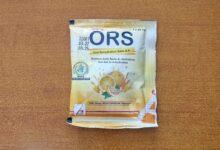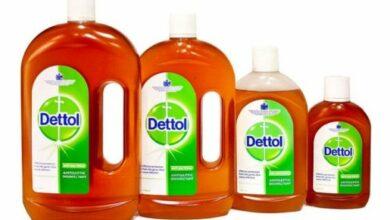Cost and Quality of Healthcare in Nigeria
Here in this post, we are going to give you a detailed analysis of the cost and quality of healthcare in Nigeria. We hope you find this article informative.
Nigeria as we all know, is not easy to live in. She faces political and economic instabilities year in year out as government come and go.
👉 Relocate to Canada Today!
Live, Study and Work in Canada. No Payment is Required! Hurry Now click here to Apply >> Immigrate to CanadaThe nation is a far cry from its gallant self. History has it that Nigeria was once a prosperous and happy nation. A haven destination to people all over the globe. Today we see a turn of event from the stories we were told by our parents and grand relatives.
Read Also: 10 Functions of Health Insurance Schemes in Nigeria

As each day goes by, news of rampant deaths related to health management and lack of adequate attention from health centers spread across the country.
The health centers built by past governments have being left to depreciate. Proper man-power and staffing with qualified medical personnel is now left for our imaginations.
Falling sick in Nigeria could mean a death sentence due to the lack of qualified persons working in the health centers.
Read Also: 10 Functions of Health Institutions in Nigeria
Wrong prescriptions of medicine by quacks in white have caused complications and even the death of many Nigerians in recent times. Suffering and pain is the story of many Nigerians that survived visits to these poor medical facilities.
What we see today in our streets and market places are unregistered and unregulated sales of drugs in chemists and pharmaceutical stores.
👉 Relocate to Canada Today!
Live, Study and Work in Canada. No Payment is Required! Hurry Now click here to Apply >> Immigrate to CanadaThey sell drugs and give prescriptions to sick people that patronize them instead of advising them to visit a standard hospital.
These stores are not concerned about the health of their patients or the side effects that their customers suffer after purchasing these drugs. They are mostly out for the money and are concerned only about their pockets.
Not to even talk of the prices placed on these drug. An illness such as malaria would cost an individual close to two thousand naira for a quality treatment.
Many Nigerians who cannot afford such an amount are forced to buy the alternative, cheap and substandard version of the drug.
Drug peddlers and hawkers are also to be weary of because the drug they sell are sometimes manufactured under unclean environment.
These sellers are rampant in market places and not so surprising is the fact that many Nigerians patronize them because the drug they sell are cheap.
Read Also: 12 Functions of Health Maintenance Organization in Nigeria
Quality of Healthcare in Nigeria
The quality of healthcare in Nigeria is nothing but poor. People die daily because of the poor state of medical establishments in the country. Many surgeries are complicated by unqualified and inexperienced medical attendants.
To properly qualify the healthcare system in Nigeria, one would have to study all the variables associated to health which leads to a healthy living.
Access to clean water supply and ability of medical centers in Nigeria to provide treatment to common illnesses will be considered.
Access to Water Supply and Hygiene in Nigeria
According to Wikipedia, 47 percent of the population in Nigeria between 1990 and 2006 do not have access to good quality sources of drinking water.
This percentage is very low considering the high population in the country. The dysfunctional water system in Nigeria is not also making any progress.
The Federal Water Board is only limited to Urban areas where only the rich can afford but those struggling to survive cannot access it.
In rural areas, residents are left to fend for themselves by drilling boreholes and digging deep wells to get drinking water.
Little wonder for the depreciating level of hygiene in homes and surroundings. Water is needed to perform most daily activities and cleaning the environment is one of them. Due to the lack of constant water supply, homes are left dirty for days and only washed probably once in a week.
Common illnesses; HIV/AIDS
The spread of HIV keeps rising as the years pass due to the low level of awareness. This disease has high prevalence among the youth, most especially young women.
Also associated with it is the spread of sexually transmitted infections. This diseases are transmitted due to risky behaviours.
HIV is passed on when people engage in unprotected sexual activities, share sharp objects and especially when blood used for transfusion is not properly screened.
Kudos should be given to the Federal Government and the numerous Non Governmental Organization for their efforts in sensitizing the general public through paid adverts and programmes. Condoms are given out free in most clinics and government owned general hospitals.
People are now becoming wise as they engage in sexual activities. Nobody wants to die, especially prematurely as a result of getting infected with HIV/AIDS.
Read Also: 10 Problems Of Nigeria Health Sector
Malaria
One of the commonest diseases known to Africa is the Malaria Epidermic. Malaria is spread through a bite from a tiny insect called mosquito. Most reported sicknesses on a daily basis in hospitals spread across Nigeria is caused by malaria.
Poor hygiene and sanitation in our environments leads to excessive breeding of mosquito. The disease if left unchecked can lead to death. Wikipedia has it that 11 percent of the population in Nigeria are infected with malaria. This research was conducted in 2012.
The health ministry in the country has made efforts to curtail this disease through preventive measures. They have provided free insecticide treated nets and also given out free malaria drug to patients.
Although some of these actions have been politically driven. The measures eventually don’t last long.
Pregnant women and Child Care
Pregnant women and children are among the most vulnerable groups in the society and especially in Nigeria. They face the risk of dying from various diseases and infections.
Proper attention plus quality health care are not forthcoming to women and children living in rural areas. Government in the past have tried by establishing policies and schemes to alleviate the plight and suffering of the people.
Primary Healthcare centers have also been established in rural communities in most Northern state of Nigeria. These health centers cater for the needs of pregnant women. They serve as mini hospitals by treating sick patients and accident victims.
This effort by the government is only felt by a half portion of the country. Other regions like the South do not have the presence of these Primary Health centers. They are left to the mercies of private establishments that charge high prices for treatment.
Access to quality food
This article will not be complete without the mention of food. Many Nigerians do not have enough resources to care to their dietary needs. Food is a major source of nutrition and a contributing factor in maintaining good health.
The hike in food prices in most markets makes living hard and generally unbearable for many Nigerians. Feeding is a problem for many and lack of nutrition in the body is a major cause of ill health in the country. Stunted growth, scabies, blurry vision and a host of many others are related to nutrient deficiencies.
Unarguably, this poor feeding habits in Nigeria has brought negative effects. Without substantial food, the energy needed to carry out daily activities will not be there.
This has adverse effect on the health of Nigerian citizens. An example is low productivity as they perform their various civic duties.
Use of traditional medicines
It is still a practice by many Nigerians to indulge in the use of local medicines and herbal drug. These drugs are not bad but the problem lies in the wrong usage and administration of them.
Traditional medicines can help boost the health and economy of a country and Nigeria is not exempted. The only problems these local drug have is the level of uncontrolled sales and unregulated production. Importantly, these drugs are relatively cheap and readily available in rural areas.
Read Also: Problems And Prospects Of Public Health Care In Nigeria
Conclusion
In conclusion, the cost of drugs and access to quality health care in Nigeria has always being an obstacle for the Nigerian government.
More efforts have to be made in this aspect of human life. Nigerians deserve better when it comes to quality and affordable healthcare delivery. Thank you.







